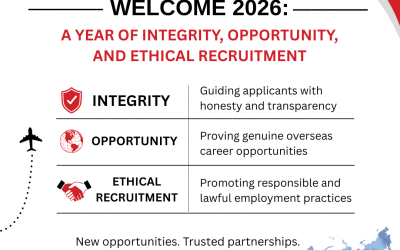The COVID-19 pandemic significantly impacted the way we work, and recruitment was no exception. Here are some of the lasting changes that have transformed the recruitment landscape:
1. The Rise of Virtual Recruitment:
- Video Interviews: In-person interviews became a health risk, leading to a surge in video conferencing platforms like Zoom for conducting interviews. This allows for wider talent pool access and increased efficiency.
- Virtual Job Fairs: Physical job fairs were replaced by virtual events, enabling companies to connect with a broader range of candidates across geographical boundaries.
- Remote Onboarding: The shift to remote work led to the development of virtual onboarding processes, ensuring new hires are welcomed and equipped for success even when working from afar.
2. Focus on Employee Well-being:
- Work-Life Balance: The pandemic blurred the lines between work and personal life. Companies are now prioritizing work-life balance with flexible work arrangements and remote work options.
- Employee Benefits: Benefits packages have evolved to reflect employee needs during and after the pandemic. This includes mental health support, childcare assistance, and remote work stipends.
- Emphasis on Company Culture: Building a strong company culture has become even more crucial to attract and retain talent in a remote work environment. Companies are focusing on fostering open communication, collaboration, and employee engagement.
3. Shifting Candidate Priorities:
- Focus on Meaningful Work: Employees are increasingly seeking jobs that offer purpose and career growth. Companies need to showcase their mission and values to attract candidates who want to contribute to something bigger.
- Compensation and Benefits: Competitive salaries and comprehensive benefits packages remain essential for attracting and retaining top talent.
4. Tech-driven Recruitment:
- Artificial Intelligence (AI): AI is being used in recruitment to automate tasks like resume screening and candidate sourcing. This allows recruiters to focus on more strategic aspects of the hiring process.
- Social Media Recruitment: Social media platforms like LinkedIn are powerful tools for employer branding and connecting with potential candidates.
- Data Analytics: Companies are leveraging data to gain insights into their recruitment funnel, identify areas for improvement, and make data-driven decisions.
These changes have created a new era of recruitment, characterized by flexibility, technology adoption, and a focus on both candidate and employee well-being. Companies that adapt to these evolving trends will be better positioned to attract top talent and thrive in the post-pandemic job market.




